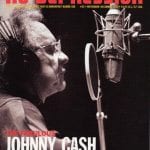Kimmie Rhodes – Bramble rose
Given the uncertainties of the music business, it’s wise for a singer-songwriter to have something to fall back on. Though Kimmie Rhodes began singing at the age of 6 in her family’s gospel trio, she never dreamed of making her living onstage. Instead, she wanted to be a florist, an occupation she pursued as a young mother while living on a farm through the 1970s in North Texas.
“I’d moved to Austin for just a little while, but that whole hippie era wore me out,” says the Lubbock native, who’d married at 16. “So we went to work on a family farm. I’d always wanted to be a florist since I was a little girl. It’s like being a barber; you’ll always have a job. When I came back to Austin in 1979 and was trying to get on my feet as a writer and musician, it gave me something to do that I loved. I’d work in the day as a florist and at night as a musician.”
Call her a late bloomer. Rhodes, 48, no longer needs to arrange flowers to pay the bills, yet the transparent purity of her music reflects an organic approach. Willie Nelson, who sings two duets with Rhodes on her new album Love Me Like A Song (released on her own label, Sunbird Records), has long embraced Rhodes as a kindred musical spirit. Emmylou Harris, Beth Nielsen Chapman and keyboardist Benmont Tench (making his vocal debut on loan from Tom Petty’s Heartbreakers) are among the friends who also helped bring this labor-of-love recording to blossom.
“She hasn’t had as much commercial success as she should, but I think it’s pretty unanimous among my colleagues that she’s really special,” says Nashville songwriter Chapman. “Her writing is just so deep, and her material is timeless. I think her songs are going to be discovered, but it’s almost been a protection for her not to have had a huge hit early on and be caught up in the machinery.”
By the standards of Austin, she’s already been plenty successful, as royalties from songs cut by Nelson, Trisha Yearwood and Wynonna have allowed Kimmie to tend to her own artistic garden. Her home recordings are very much a family affair, with her 28-year-old son Gabe Rhodes serving as her producer, a job he’s inherited from Kimmie’s husband, Joe Gracey, who continues to play bass for her.
“Gabe’s been playing with me for 15 years or so,” she says. “When I had my band that used to play at the Broken Spoke, and Willie’d come and join us, Gabe would stand over at the side of the stage and just play unplugged. He grew up with great guitar players as his babysitters, and he really knows my music from the inside out.”
Gracey, whom Rhodes met and married in the early 1980s after returning to Austin, played a pivotal role in the hippie/redneck convergence that established the Texas capital as an oasis for progressive country. A popular DJ and program director for KOKE-FM in the 1970s, he helped pioneer the format that wouldn’t be classified as Americana or alt-country until decades later. He was also a friend of Willie Nelson, who invited Kimmie and Joe to record her 1983 debut album, Kimmie Rhodes & The Jackalope Brothers, at his studio.
“I think Willie understood not only what I was doing, but what I was in for, and he took me under his wing,” she says. “We had similar backgrounds, since both of us had started out playing gospel music, and our choices have been similar, with this freedom of spirit we have where our music is concerned.”
Rhodes achieved an artistic breakthrough with 1996’s West Texas Heaven song cycle, and her music has attained a state of grace on 2000’s Rich From The Journey and the new Love Me Like A Song. Though her lyrics are never preachy, there’s a luminous spirituality to her material, an unaffected simplicity, as if she’s sharing her soul’s deepest truths on songs such as “Darkness Lifting” and “Only Love Can Save Me Now”.
“A lot of times I write the songs unconsciously, trusting the feeling,” she says. “You’re trying to write your way to that feeling, to get to the core of why you feel the way you do.”
For all the respect she enjoys in Nashville songwriting circles, Rhodes remains more comfortable in Austin, where her music is less a career than part of an artistic palette that extends from painting to playwriting. “In Austin, it’s just people being artists and living day to day,” she says. “If I lived in Nashville, maybe I could be a bazillionaire, ’cause you’re writing all the time and you’re so plugged into all the records that are made there, but there’s so many other things I want to do.”




